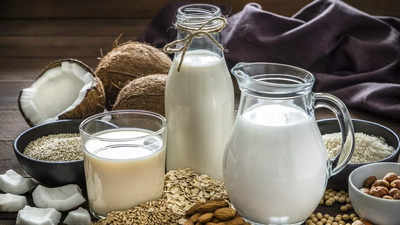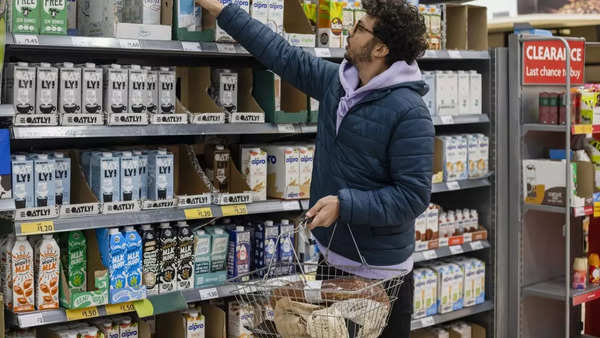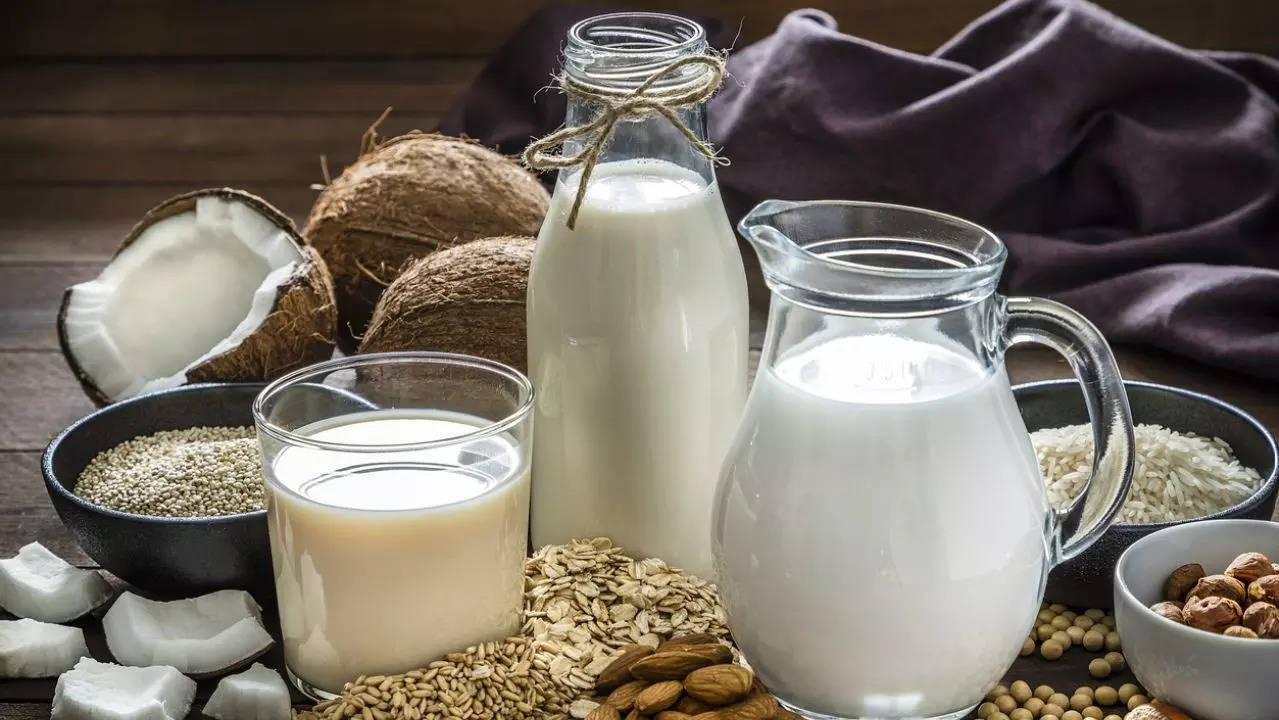In recent decades, plant-based drinks and beverages are fast catching popularity among people. It is believed that the presence of remarkable antioxidants and plant-based compounds in these drinks can offer various health benefits, including improved digestion, enhanced immune function, and reduced inflammation.
From oat and soy drinks, pea beverages to almond milk, there is no dearth of vegan options for people who are looking to substitute their dairy. While they can be a blessing for gluten-intolerant and may even serve as an alternative to cow milk in various recipes, as per recent study, they may not be as nutritious as cow’s milk, even though they are more environmentally-friendly.
This may be because unlike cow milk which is a finished product, plant-based drinks undergo processing that often compromises their nutritional content.
In the recent study, researchers from University of Copenhagen – Faculty of Science, analysed how chemical reactions during processing can affect the nutritional quality of ten different plant-based drinks.
“We definitely need to consume more plant-based foods. But if you’re looking for proper nutrition and believe that plant-based drinks can replace cow’s milk, you’d be mistaken,” says Department of Food Science professor Marianne Nissen Lund, the study’s lead author.
Loss of nutrients
As the plant-based drinks are designed to be long-shelf, they often have to undergo ultra-high temperature (UHT) treatment, a process commonly used for long life milks around the world. The trouble with the treatment is that it triggers a chemical reaction called “Maillard reaction” between protein and sugar that occurs when food is fried or roasted at high temperatures. This reaction can impact the nutritional quality of the proteins in a given product.
“Most plant-based drinks already have significantly less protein than cow’s milk. And the protein, which is present in low content, is then additionally modified when heat treated. This leads to the loss of some essential amino acids, which are incredibly important for us. While the nutritional contents of plant-based drinks vary greatly, most of them have relatively low nutritional quality,” explains the expert.
In comparison, the UHT-treated cow’s milk used in the study contains 3.4 grams of protein per liter, while 8 out of the 10 plant-based drinks analyzed had protein levels ranging from 0.4 to 1.1 grams per liter. Additionally, all the plant-based drinks showed lower levels of essential amino acids. Moreover, 7 out of the 10 plant-based drinks contained higher sugar levels than cow’s milk.
The danger of carcinogens
Heat treatment can also generate new compounds in plant-based drinks and one of them measured by the researchers in four of the plant-based drinks made from almonds and oats is acrylamide, a carcinogen that is also found in bread, cookies, coffee beans and fried potatoes, including French fries.
“We were surprised to find acrylamide because it isn’t typically found in liquid food. One likely source is the roasted almonds used in one of the products. The compound was measured at levels so low that it poses no danger. But, if you consume small amounts of this substance from various sources, it could add up to a level that does pose a health risk,” says Marianne Nissen Lund.
Besides, researchers also found α-dicarbonyl compounds and hydroxymethylfurfural (HMF) in many plant-based drinks, both of which are reactive substances that could potentially be harmful to human health when present in high concentrations, although this is not the case here.
Homemade drinks retain nutrients
It is ideal to prepare these plant-based drinks and foods at home and wherever possible opting for least-processed foods and beverages is better.
“Ideally, a green transition in the food sector shouldn’t be characterized by taking plant ingredients, ultra-process them, and then assuming a healthy outcome. Even though these products are neither dangerous nor explicitly unhealthy, they are often not particularly nutritious for us either,” says Professor Marianne Nissen Lund.
‘Vakeel Saab’ actress Nivetha Thomas called out for milking a cow in new video: ‘Please don’t torture them. It’s not joy’
I’m Manas Ranjan Sahoo: Founder of “Webtirety Software”. I’m a Full-time Software Professional and an aspiring entrepreneur, dedicated to growing this platform as large as possible. I love to Write Blogs on Software, Mobile applications, Web Technology, eCommerce, SEO, and about My experience with Life.





